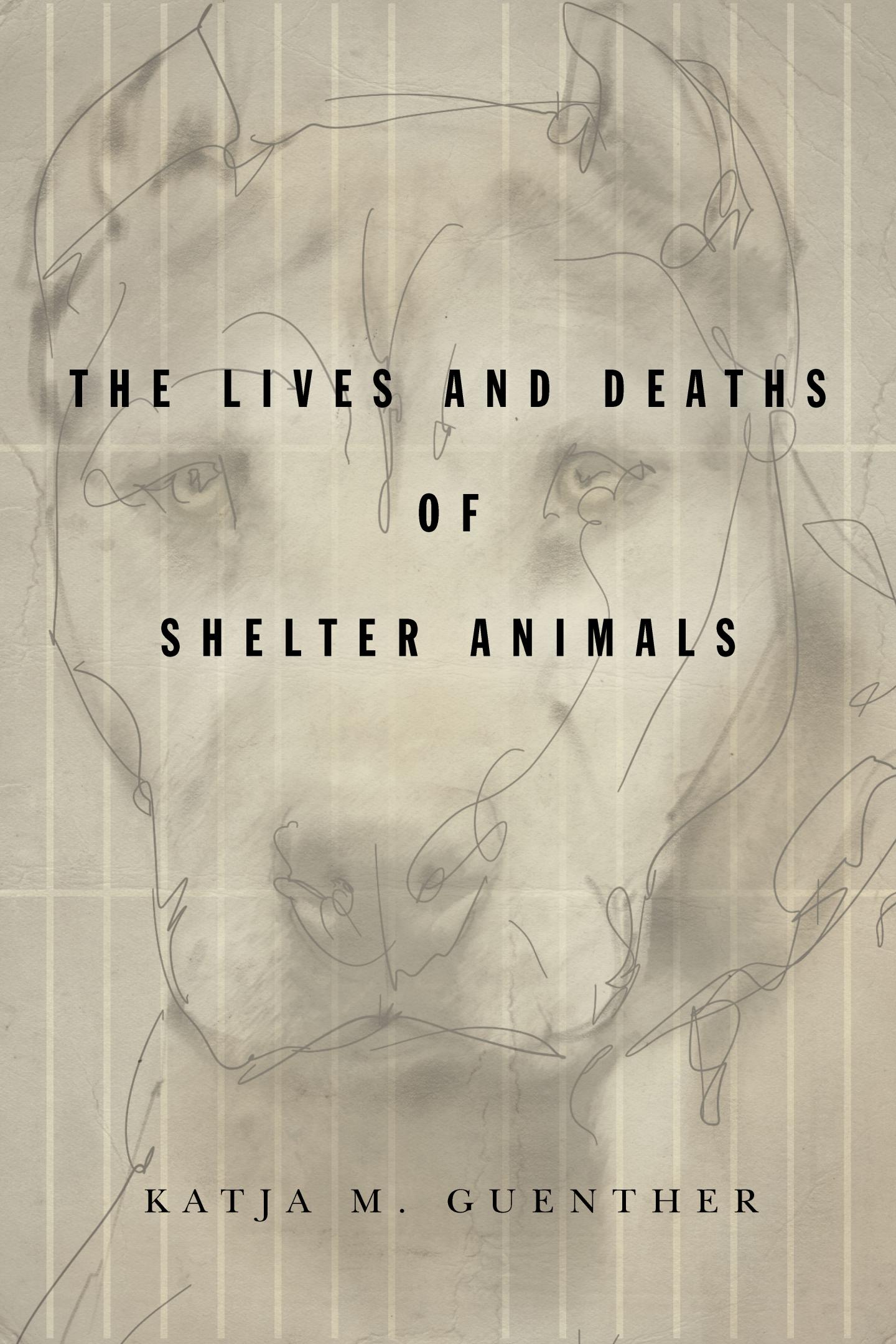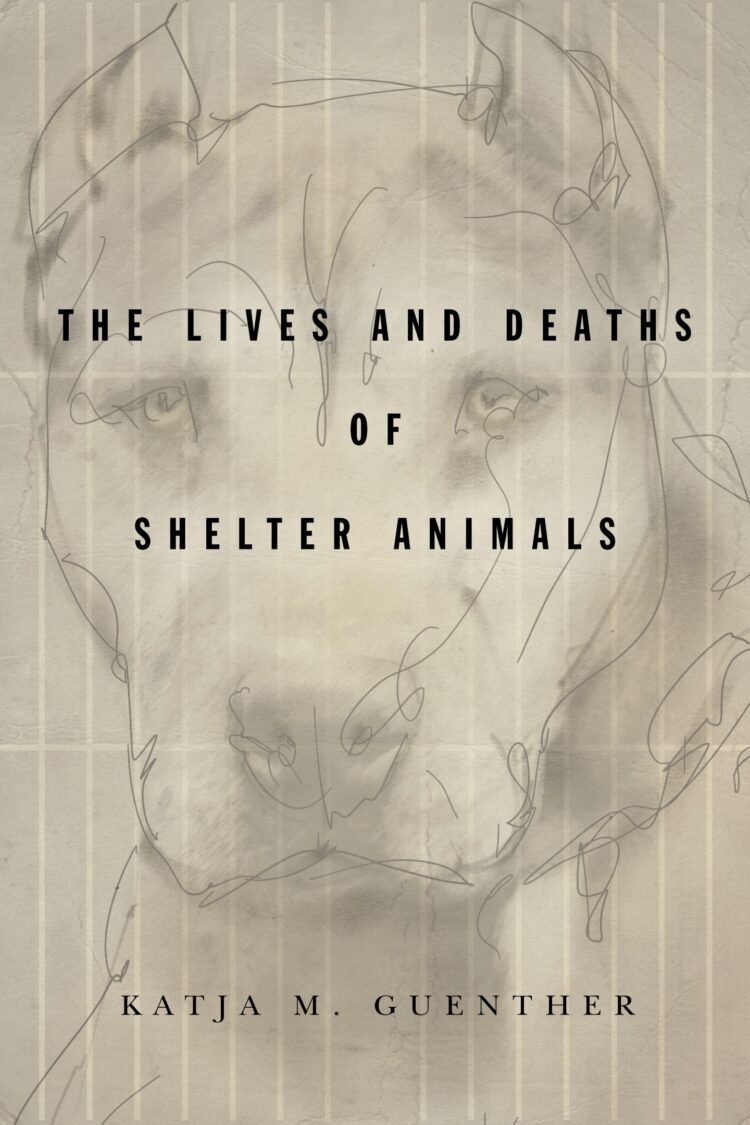Humane communities would endorse animal-friendly affordable housing, living wages, and recognize the importance of human-animal bonds

Credit: Stanford University Press
Overpolicing and constant surveillance of low-income urban communities leads to the incarceration of animals as well as people with many pets being killed in public animal shelters, argues UC Riverside Associate Professor of Gender & Sexuality Studies Katja M. Guenther in her new book, “The Lives and Deaths of Shelter Animals.”
Guenther shows in poignant detail how residential segregation and systemic racism criminalize certain sorts of dogs and their Black and Latino human guardians — and how this influences life and death decisions regarding the fates of shelter animals.
“Low-income communities of color are disproportionately subject to intervention from animal control officers, just as they are from police,” Guenther said. “Their companion animals are more likely to end up impounded in shelters, disrupting human-animal relationships, which have been consistently shown to provide critical emotional and physical benefits to human guardians.”
Drawing on multiple years of ethnographic research in a high-intake Los Angeles-area public animal shelter, Guenther documents the processes underlying disproportionate rates of animal killing in a shelter responsible for animal control in mostly lower income Latino communities compared to shelters serving wealthier, whiter parts of Los Angeles.
Guenther, a long-time volunteer at the shelter, which took in 20,000 animals each year when she started volunteering, spent three years observing interactions among shelter animals, staff, volunteers, rescuers, and members of the public to understand the connections between the high rate at which animals were killed in the shelter and wider dysfunctions in society.
“What I found is that many of the dominant social ideas we have about why animals are in shelters are myths,” she said. “These myths echo and reinforce negative beliefs we already have about poor people of color in the United States, and place blame for animals dying at the shelter on these individuals, instead of on our society.”
Guenther observed racism and poverty make it very hard for many people to hold onto and care for animals they love. Eviction was the number one reason dogs were surrendered to the shelter. Most of these dogs were well cared for and accompanied by their weeping human guardians.
However, shelter workers and volunteers labeled these people as “irresponsible pet owners” who “abandoned” their animals when they moved. This occurred even with owners who left their companion animal behind because they were unable to find an affordable home that allowed their dog or cat, or because they experienced sudden homelessness, arrest, or deportation.
“Responsible” pet owners translated to persons who had control over their living situations and greater predictability in their income, careers, and lives overall. For poor people of color with more precarious lives, these conditions were hard to meet.
Likewise, conditions for reunification with one’s pet were often insurmountable. For example, the shelter subjected local residents trying to reclaim a stray dog to a home inspection. These inspections could take weeks to schedule while impound fees added up, making it too expensive for many people to reclaim their beloved canine companion. White, seemingly middle class people did not have to navigate these hurdles and received their dog immediately.
In this and other ways, Guenther illustrates how shelter staff, volunteers, and animal rescuers promote white, middle class ideas about how companion animals should be treated. She writes that these practices link race, class, and animal death together in ways that justify the shelter’s assertion of control over the animals of poor people of color, and people of color themselves.
Because pit bulls were popular in the community and barred by many landlords, they were one of the most common types of dogs found in the shelter. The shelter classified pit bulls as “dominant breed dogs” no matter their individual personality, limiting who was allowed to interact with them and putting them on the fast track to euthanasia. This sad fate, Guenther says, simultaneously resulted from their association with Black men and criminal activity and served to reinforce this false connection.
Volunteers and animal rescuers, who were mostly white women from middle or upper class backgrounds, engaged in practices — like giving pit bulls names that sounded white and middle class and dressing them up — to erase their connection to Black masculinity and make them more appealing to white middle-class adopters.
Guenther’s findings support the contention that breed specific legislation, or laws that ban pit bulls and other types of dogs, increases the number of pit bulls in animal shelters, criminalizes their human guardians, and reinforces the unfounded idea that these are especially dangerous dogs, limiting their chances of survival when they end up in a shelter. She argues that these laws should be abolished, and that landlords and insurance companies should be required by law to accept all companion animals.
Guenther also finds shelter volunteers and even the animals themselves resist the shelter’s control over impounded animals.
“Shelter volunteers are key advocates for shelter animals. They develop their own expertise and knowledge of companion animals and the shelter,” Guenther said. “As a group, volunteers challenge shelter staff and the shelter’s practices. Because many volunteers are middle-class white women, while the staff are disproportionately working class people of color, struggles about power over the animals also often involve conflicts of race, class, and gender.”
Guenther makes a passionate plea for social justice and full equality for poor people of color centered on what she calls a Humane Communities Revolution.
“We have seen a lot of movement toward the so-called No-Kill model in many parts of the United States, which has hugely improved the odds for shelter animals,” Guenther said. “That model focuses almost entirely on what shelters are doing internally, but if we truly want to eradicate people losing their animals and shelter animals being killed, we need a more expansive view of what’s going wrong with companion animals in the U.S.”
Humane communities would endorse animal-friendly affordable housing, living wages, social and political recognition of the importance of human-animal bonds, and the incorporation of community members and animals themselves into developing shelter programming.
“In fighting for social justice, we have an opportunity and an obligation to expand this effort to include ways to live with animals that do not depend on the right of humans to control and dominate them,” Guenther said.
###
Media Contact
Holly Ober
[email protected]
Original Source
https:/





